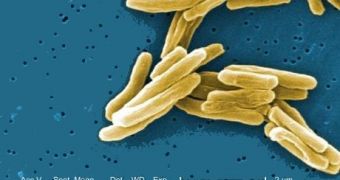Scientists at Barts and The London School of Medicine and Dentistry, carried out a research that showed that vitamin D can accelerate the antibiotic treatment in patients suffering from tuberculosis (TB).
TB patients have vitamin D deficiency (122/126 patients in the trial, or 97%), had inadequate levels of vitamin D at the beginning of the study, which can be due to a diet low in vitamin D, or in the UK, it can be caused by a lack of sunshine.
There is also a possibility that TB causes vitamin D deficiency through a mechanism that is not fully understood nowadays.
Lead researcher of the study, Dr Adrian Martineau of the Center for Health Sciences at Barts and The London School of Medicine and Dentistry, said that “vitamin D is best known for its effects on bones - it prevents rickets and osteomalacia - but it also has important effects on the immune system.
“High dose vitamin D was used to treat TB in the days before antibiotics were available, but clinical trials have not previously been performed to find out how TB patients' genetic make-up can affect their response to vitamin D supplementation.
“The finding that patients who have a particular type of vitamin D receptor are very responsive to vitamin D is new and gives us insights into how vitamin D can affect the immune response.”
In the trial funded by the British Lung Foundation – researchers recruited 146 patients with drug-sensitive TB, from 10 National Health Service Trusts in London.
The participants were randomly and evenly assigned to receive either four oral doses of 2.5mg of vitamin D, or a placebo, but all of them kept receiving standard antibiotic treatment for their condition.
The first difference that the researchers observed was in the average time of TB being cleared from the lungs – 6 weeks for patients taking standard therapy alone and 5 weeks for those taking additional vitamin D.
This difference alone was not enough for statistical significance, but some patients, with a specific genetic type of vitamin D receptor, proved to be much more vitamin D responsive than others and cleared TB bacteria much faster if they received vitamin D in addition to standard antibiotic treatment.
“The findings of this study, which was funded by the British Lung Foundation, show great promise in speeding up the antibiotic treatment of TB for those patients which are receptive to vitamin D,” said Ian Jarrold, Research Manager for the British Lung Foundation.
“The treatment process is currently very long and can be costly so any headway made in the medical research field for this disease is welcome to improve outcomes for patients.”
The study is published today in The Lancet.

 14 DAY TRIAL //
14 DAY TRIAL //